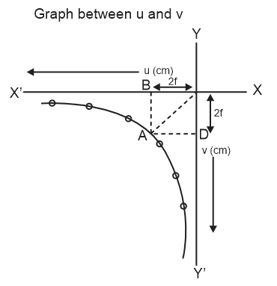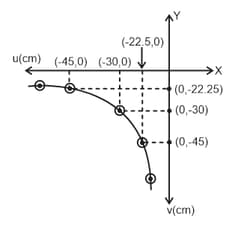MEDIUM
Earn 100
Which of the following sources of error in a metre bridge experiment to measure the resistivity of a material and the resistance of a specific wire is most likely not to result in an inaccurate measurement?
(a)Loose connections in the circuit.
(b)Non-uniform diameter of the wire.
(c)Backlash error in the screw gauge.
(d)Inconsistent room temperature.
80% studentsanswered this correctly
Important Questions on Experiments Related to Optics
MEDIUM
What should be done in a meter bridge experiment to rectify a deflection in one direction indicated by the galvanometer if the null point is not reached?
MEDIUM
Which of the following stages is not a part of the correct procedure in a meter bridge experiment to find the resistance and resistivity of a wire?
MEDIUM
In a meter bridge experiment, the null deflection was obtained at a length of . The known resistance used is . What is the unknown resistance in the wire?
MEDIUM
What will happen to the observed resistance of the wire in a meter bridge experiment if the length of the wire on one side of the jockey is increased while maintaining the same current?
MEDIUM
A resistance wire connected in the left gap of the meter bridge balances a resistance in the right gap. This happens at a point where the bridge wire is divided in the ratio of . Assuming the length of the wire to be , calculate the length of the resistance wire?
HARD
A student was performing a meter bridge experiment in a laboratory with a standard resistance and a resistance wire . He found that the balancing length is . Then he replaced by a wire of half the length and half the diameter, those of (of the same material), then the balancing distance (in ) will now be
MEDIUM
What is the principle behind the null point in a meter bridge experiment?
HARD
In the meter bridge experiment, why is the bridge wire made of a material with a low temperature coefficient?
MEDIUM
Why is the jockey moved gently from one end to the other during the metre bridge experiment?
HARD
In a meter bridge experiment, a wire of length and uniform cross-sectional area is used to measure its resistance. The bridge is balanced at a point P where the lengths of the wire on either side are in the ratio . If the known standard resistance is and the length of the wire is L, the resistance of the wire is given by:
HARD
In the meter bridge experiment, why is it important to ensure that the deflections in the galvanometer are in opposite directions when the jockey is moved along the wire?
MEDIUM
A metre bridge is balanced with known resistance in the right gap and a metal wire in the left gap. If the metal wire is heated the balance point
HARD
As shown, in a lab experiment, a student makes a graph based on his observations. In the u-v graph for a concave mirror, he drew lines OA, AB, and AD. what is the significance of point A?

EASY
How are the values of and represented at point A on the graph for a concave mirror?
HARD
In an experiment of finding focal length of a concave mirror by u-v method, a student prepares following graph of u versus v graph.

Focal length of mirror is nearly
MEDIUM
A concave mirror lab experiment being conducted by a student. What should he adjusted to obtain a clear, sharp image on the screen in front of the concave mirror?

